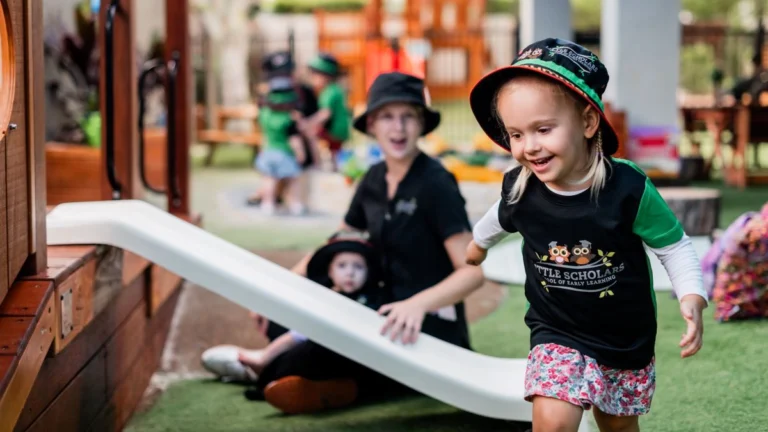If you’re the parent or guardian of a child under five, you’ve probably observed some lies at some point during their young life.
That’s normal and dare we say, developmentally appropriate. We didn’t say it’s OK, but it’s common! Your child isn’t headed for a life of crime and incarceration, so you can now let out a sigh of relief. And there are certainly things you can do to help lead your child to a more honest way of communicating!
But from a developmental perspective, a blog shared by Early Childhood Australia confirms that lying in young children is rarely cause for concern.
From the ECA blog: “lying is often one of the first signs a young child has developed a “theory of mind”, which is the awareness others may have different desires, feelings, and beliefs to oneself. When a child misleadingly claims “Daddy said I could have an ice cream”, they’re using this awareness of others’ minds to plant false knowledge.”
Children can start lying by the time they start stringing sentences together, between the ages of two and four. The tales they tell may get more elaborate from the age of roughly four and up, as they start to understand what may be more likely to be believed, as their understanding of how others might think and interpret what they say gets more sophisticated.
But the reason behind the lies could also be far less sinister than you think it might be.
Perhaps, your child is just looking to be seen. It might be that they’re feeling invisible to you, and to really get your attention, to get you to make a big deal out of something in their lives, they need to make their story bigger. It can be easier for adults to think their problems, concerns and issues are so much bigger and more important than a child’s, but important to whom?

Interestingly, research has found that while almost all children lie at some point, they also have a pretty clear understanding young that lying is wrong. Kay Bussey from Macquarie University, found that children as young as four years of age rated ‘lies about misdeeds as being very bad and that the liar would feel guilty for telling such a lie. Furthermore, they rated this type of lie more negatively than other types of lies and even misdeeds themselves.’
So, children not yet school-aged do understand right from wrong, yet they do it anyway.
How might a parent react to this that would be an effective way to tamp down the untrue stories children sometimes tell?
One way to approach children lying, according to Jess Vanderwier, an American psychotherapist, is to come at it with curiosity and compassion.
Vanderwier’s strategies include:
Finally she says when your child tells the truth, especially in difficult situations, praise them for their courage and honesty. Noticing their honesty can encourage more truth-telling in the future.
Sometimes children lie or keep secrets to hide serious issues, such as experiencing harm or witnessing harm to others. For instance, children who have been abused by adults or bullied by peers might lie because they fear consequences or feel unsafe speaking up.
If you suspect your child is lying to protect someone or themselves:
Creating a safe environment is key to encouraging honesty and addressing any underlying issues. This is something that should be done all the time, not just when honesty is questioned.
Please know children’s safety is paramount to us. If we at Little Scholars suspect a child is being harmed, we have a duty of care to and will report it.
Let us hold your hand and help looking for a child care centre. Leave your details with us and we’ll be in contact to arrange a time for a ‘Campus Tour’ and we will answer any questions you might have!
"*" indicates required fields
Let us hold your hand and help looking for a child care centre. Leave your details with us and we’ll be in contact to arrange a time for a ‘Campus Tour’ and we will answer any questions you might have!
"*" indicates required fields